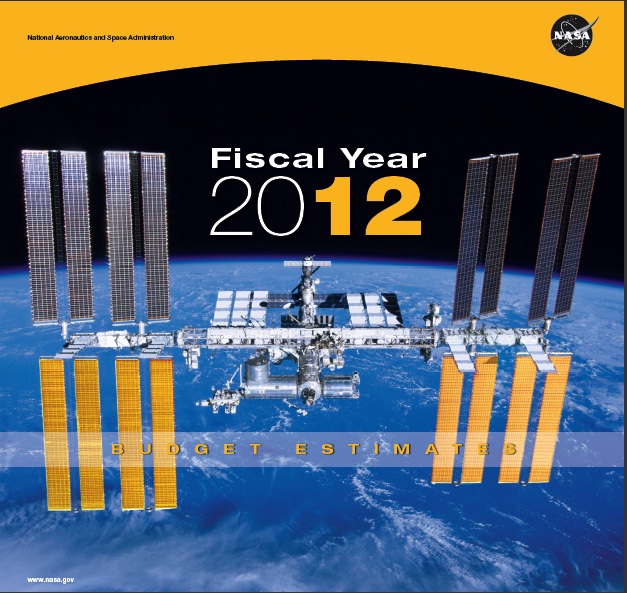NASA’s 2012 Budget Estimate Overview can be found here (pdf).
The Budget Summary can be found here (pdf).
Funding Highlights:
- Provides $18.7 billion, the same amount the agency received in 2010. Funding focuses on areas that will improve the Nation’s space capabilities, strengthen our competitive edge, and prepare the next generation of leaders in the field. The Budget also proposes to streamline operations and boost efficiencies at facilities
- Maintains the Nation’s commitment to humanity’s foothold in space—the International Space Station—bringing nations together in a common pursuit of knowledge and excellence
- Initiates development of a heavy-lift rocket and crew capsule to carry explorers beyond Earth’s orbit, including a mission to an asteroid next decade—the furthest journey in human history
- Embraces partnership with the commercial space industry and the thousands of new jobs that it can create by contracting with American companies to provide astronaut transportation to the Space Station—thus reducing the risk of relying exclusively on foreign crew transport capabilities
- Supports groundbreaking innovations by continuing a program of robotic solar system exploration and new astronomical observatories, including a probe that will fly through the Sun’s atmosphere and a new competitively-selected planetary science mission
- Supports a robust and diverse fleet of Earth observation spacecraft to strengthen U.S. leadership in the field, better understand climate change, improve future weather predictions, and provide vital environmental data to Federal, State, and local policymakers
- Sharpens the focus of the aeronautics research program by emphasizing enhancing aviation safety and airspace efficiency, and reducing the environmental impact of aviation
- Initiates a pilot program to provide NASA Centers and surrounding communities with clean energy through the innovative use of NASA property




















1 thought on “NASA Budget for 2012”
I would urge the society to push for the reauthorization of the Constellation program and the extension of the Shuttle program. It is crazy to drop out of the space transportation business for any length of time. I see all kinds of disastrous possible outcomes as a result of this change in strategy which is occurring as we get ready to retire shuttle fleet. The NSS should push hard to reauthorize the Constellation program while there is still the possibility that the new congress may reverse the decision of scrapping the Constellation program.
The text below is my rational on this subject recently sent to Senator Bill Nelson.
Loss of US Space Leadership and Manned Space Flight Continuity
I am extremely concerned about the scrapping of the Constellation / Orion Program. I feel the scrapping of these programs after years of development is a huge mistake and will damage the United States with regard to Space leadership and program continuity. This highly flexible system was perfect for our space goals during the next decade. This change in direction could interrupt continuity and severely damage our space program. There should be no lapse in our ability to provide transportation to the space station. The United States should not rely on the private sector for these services until we know they are ready. Changing space flight systems at the very year you are retiring your old fleet could prove disastrous. If something unforeseen should happen to the Russian Economy or if they were to change their direction, we may find ourselves unable to get to the space station at all. I urge you to call for emergency meetings with the new congress and work to save our manned space program. I firmly believe that uninterrupted man space flight is necessary for preserving our Space Leadership. I also firmly believe the disruption of manned space flight will have far reaching negative consequences affecting the Space Industry, the Military, national technological advancement and the emergence of the private sector space industry. When looking at something so critical to our future, money saved today could cost us dearly for many years to come.